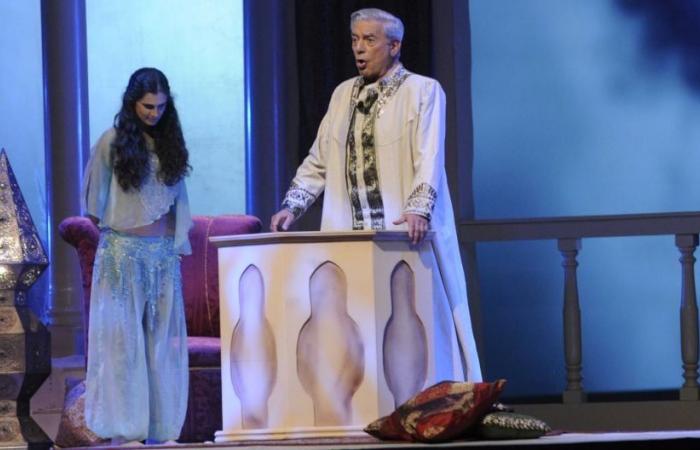
It is a March night, 2011. There is not a single one of the four hundred seats of the Auditorium of the Boulevard of Asia. On stage, Mario Vargas Llosa (who had received the Nobel in Stockholm only three months ago) plays King Shahriana from an adaptation that he had made of the thousand and one nights. Next to him – the hands linked from behind, his head inclined in the gesture of obedience -, Vanessa Saba gives life to Sherezada.
Read too | The sun rises for everyone
A little more than two weeks have passed the death of the writer and still his disappearance raises dismay and varied reflections about his talent, ambition and prolific work. Inside and outside Peru there has been much talk about its literary, essay and dramaturgical facet, but little – or very little – of its incursion into action.
He had debuted in Las Tablas in 2006 with the show the truth of the lies, next to the Spanish actress Aitana Sánchez Gijón; The work was mounted in Spain, but also in Chile and Mexico. Then he returned to the stage, also by the hand of Sánchez Gijón, to unfold in one of the roles of Odysseus and Penelope. The same actress accompanied him in the first set of the thousand and one nights, in 2008, so that when he appeared in Asia with Vanessa Saba, Vargas Llosa was familiar with the character of Shahriar. There we see it: turned into the Sultan who, with a fierce gesture, announces behind a pulpit his revenge after being betrayed by his wife and concubines. If it were not for the tunic and Arabic decoration, we might think that one of the many political speeches he gave in life, as an committed intellectual and as a presidential candidate (seen well, his leadership in Fredem also had some performatic).
It is still curious that Vargas Llosa has chosen to become Shahriar, a tyrant, just like the many despotive rulers who are portrayed in his novels. From writing about them, the Nobel came to understand his twisted psychology, his internal violence and perhaps that is why the transformation did not cost him so much. As is known, in that story the king is hypnotized by Sherezada and that surrender implies the triumph of life. A beautiful metaphor of the writer’s relationship with literature.





